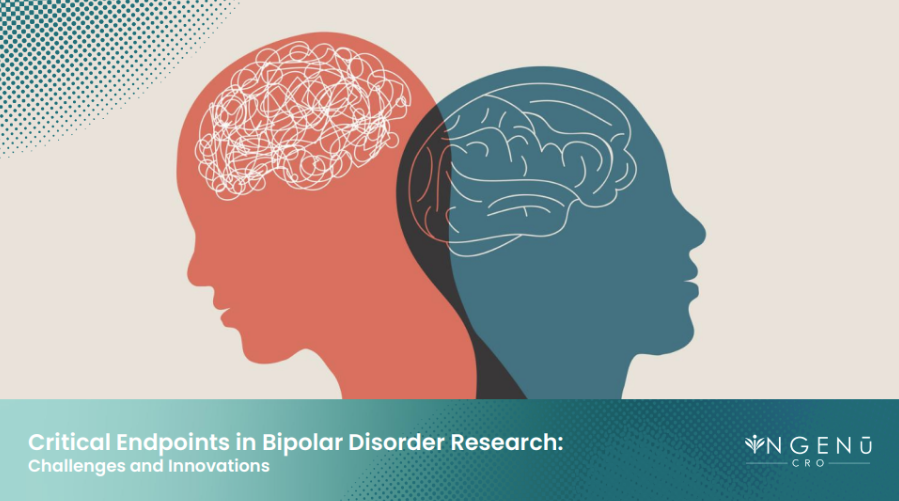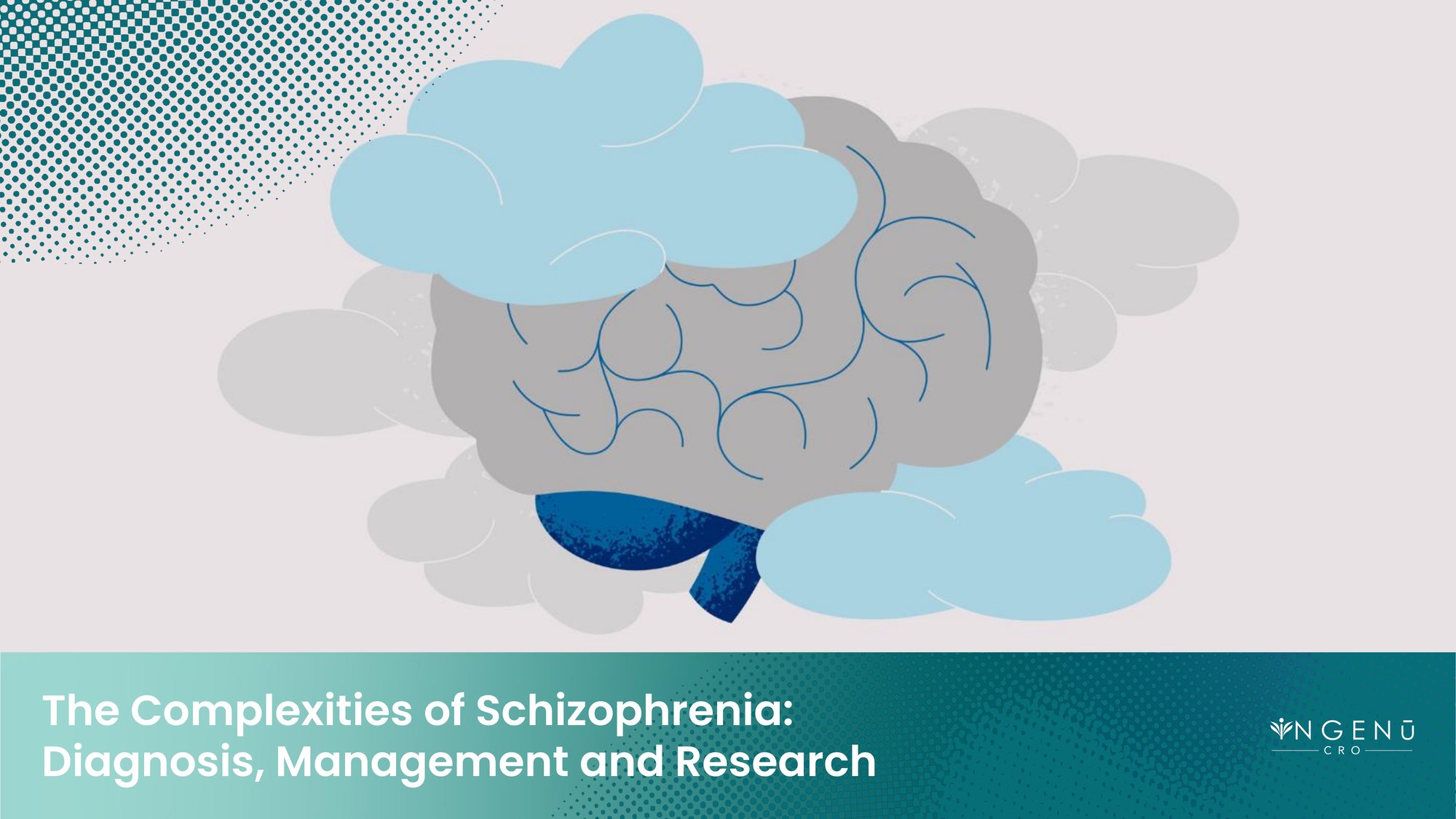Psychiatry
Our team is adept at ensuring data quality in these complex scenarios, utilising expert psychiatric evaluators and advanced data capture technologies.
Mental health clinical trials pose challenges from multiple perspectives. A CRO must ensure that it has the requisite skills to allow recruitment of the correct population, minimise placebo effects, standardise (subjective) rating scales, and ensure patient safety.
Our expertise extends to various conditions, including:
- Depression
- Anxiety Disorders
- Schizophrenia
- Bipolar Disorder
- Psychedelic Clinical Trials, where we are considered global leaders
We help design studies that consider the unique nature of psychiatric assessments, which often rely on patient-reported outcomes and observer ratings. Strategies to minimise placebo effect and neurobehavioural biases are always built into all our mental health trials.
Our team is adept at ensuring data quality in these complex scenarios, utilizing expert psychiatric evaluators and advanced data capture technologies.
Our expertise extends to various conditions, including:
We help design studies that consider the unique nature of psychiatric assessments, which often rely on patient-reported outcomes and observer ratings. Strategies to minimize placebo effect and neurobehavioral biases are always built into all our mental health trials.
Disciplined,
Cost-Efficient Execution
while maintaining the Highest Quality
Local Trials,
Global Approvals
Access FDA Regulatory Expertise
Our Clinical Team has over
120
years
of Combined Clinical Trial Experience
Addressing Common Pain Points Associated with Anesthesia & Pain Medicine Clinical Trials
Subjectivity of Assessments
Many psychiatric symptoms are self-reported, leading to potential biases and variability in data.
iNGENū CRO addresses this pain point with Objective Biomarkers
iNGENū CRO is at the forefront of developing and implementing objective biomarkers, such as advanced imaging techniques and blood-based diagnostics, to reduce reliance on subjective self-reports and improve the accuracy of psychiatric disorder assessments.
Heterogeneity of Disorders
There's often a wide range of symptoms within a single diagnosis, making it challenging to assess treatment effects across a broad patient population.
iNGENū addresses this pain point with Stratified and Personalised Medicine
iNGENū CRO employs advanced patient stratification techniques to identify specific subtypes within psychiatric disorders, allowing for targeted therapeutic interventions that lead to more precise and meaningful clinical outcomes.
Placebo Effect
Psychiatric trials frequently experience strong placebo responses, making it difficult to demonstrate the true efficacy of an investigational treatment.
iNGENū addresses this pain point with Adaptive Trial Designs
To counteract placebo effects, iNGENū CRO utilises adaptive trial designs that allow real-time modifications based on interim data. These designs enhance trial efficiency while improving the ability to detect genuine treatment responses.
Recruitment Challenges
Psychiatric studies often face recruitment and retention difficulties due to stigma, symptom severity, or concerns about experimental treatments.
iNGENū addresses this pain point with Patient Engagement Strategies
iNGENū CRO collaborates closely with patient advocacy groups, integrates digital recruitment methods, and offers decentralised trial options to improve accessibility, enhance patient comfort, and optimise retention rates.
Ethical Concerns
Balancing the risks and benefits of psychiatric trials – particularly for vulnerable populations or novel therapies – can be complex.
iNGENū addresses this pain point with Rigorous Ethical Framework & Patient-Centric Approach
iNGENū CRO ensures strict adherence to ethical guidelines, working closely with ethics committees and implementing patient-centric methodologies to protect participant wellbeing while facilitating scientific progress.
Psychiatry Clinical Trial Resources

ADHD
Bridging the Past and Future of Treatment Strategies. From pivotal endpoints to enhancing trial success.

Bipolar Disorder
Read our whitepaper on epidemiology, clinical implications, and strategies for clinical trial success.

Schizophrenia
Evolving Insights into Schizophrenia Diagnosis and Treatments. Understanding clinical trial strategies.

Binge Eating Disorder
Optimizing clinical trial design for Binge Eating Disorder.

Panic Disorder
Explore insights into Panic Disorder clinical trial design, from FDA approvals to improved protocols.
The iNGENū CRO Difference

Local Trials, Global Approvals
We uniquely combine Australian expertise with direct FDA submission capabilities, offering a streamlined path for sponsors to achieve global approval. Our seamless integration allows trial data from Australia to be submitted directly to the FDA via our E-Gateway, eliminating the need for third-party intermediaries.

Disciplined, Cost-Efficient Execution
iNGENū CRO takes a highly strategic and disciplined approach to clinical research, ensuring that every dollar is directed toward generating meaningful outcomes. Our trials are designed with efficiency in mind, eliminating unnecessary costs while maintaining the highest scientific and regulatory standards.

Australian-Headquartered, Asia-Pacific Reach
We provide sponsors with comprehensive trial capabilities across the Asia-Pacific region, offering a seamless combination of cost-efficiency and high-quality clinical trials. We leverage the region's competitive pricing while maintaining rigorous Australian-based project management and clinical oversight.

"We have been using iNGENū for a Phase 1, first-in-human trial of our investigational drug. We have used iNGENū for: Medical writing, project management, clinical data management and full end-to-end, clinical trial execution and monitoring.
We have been very happy with all aspects of the management of the clinical trial and have been particularly impressed by the out-of-the-box creative solutions to speed up and reduce overheads for our company during this clinical trial."
Giles Moss
Chief Executive Officer
Ready to discuss your Psychiatry Clinical Trial?